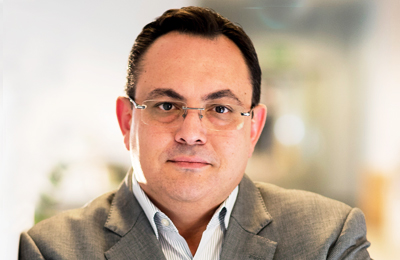Sailing through a rough economy – Part 2

In the second edition of the three-part series, Walid Sowaidan writes about why it is crucial for in-house lawyers to ‘walk the talk’.
In the last article, we discussed thoughts on how external counsel could work hand-in-hand with in-house counsel on leveraging the opportunities that come with the current economic challenges to shape the legal profession for the future. In-house counsel, who are mostly at the forefront when it comes to corporate clients, have an important role to play.
It goes without saying that protecting the corporation is top priority for every in-house counsel. It is not only about safeguarding the corporation’s rights but also about ensuring that the corporation does business the right way. In modern days, a corporation needs to comply not only with applicable laws and regulations to the jurisdiction where it does business or is incorporated, but also with a set of ethics and principles that are mandated by its position in international business. In-house counsel routinely find themselves managing risks that are reputational or associated with media or political exposure. Though those risks are not legal in nature, they have become an integral part of the basic elements of a successful risk assessment.
Besides protecting the corporation, all experienced in-house counsel know that clients expect them to demonstrate an understanding of the company’s business, handle matters with a sense of urgency and provide compliant and practical alternatives – if possible – when the proposed business method is not aligned with basic legal principles. Internal clients now look beyond how we describe the way we see our roles, to scrutinise in-house counsel’s actual behavior while interacting with them.
This has gone to the extent that in many corporations, internal clients are becoming increasingly vocal about their perception that when in-house counsel refer to them as ‘clients’, it could be an indication that lawyers are working in silos or are excluding themselves from the bigger corporate team.
There are, of course, a number of reasons for in-house counsel to describe internal business partners as ‘clients’, including without limitation attorney/client privilege. However, it is our duty to look into ways to reassure internal clients that we are part of the team, while wisely managing those concerns.
One way to navigate this challenge is to take time to carefully evaluate the issue from both angles – the lawyer’s angle and that of the clients. Does calling our internal clients ‘colleagues’ or ‘partners’ really pose a legal risk? Does that risk apply to all sub-groups of legal affairs (compliance, general counsel, IP, litigation, etc.)?
As syntax is as important as words, it is also crucial for in-house lawyers to ‘walk the talk’. If internal clients have no reason to doubt that their in-house counsel are part of the team and genuinely care for business success, debating how we describe them will be less of an issue. The core of ‘walking the talk’ is, undoubtedly, that we feel – and give the impression – that we belong to the bigger team. To enhance that sense of belonging, in-house counsel could adopt several behaviours, such as:
- To listen to our clients and then make our actions a true reflection of what our clients expect and not what we believe they expect.
- To build trust and personal rapport with our clients by showing we truly understand the challenges they face and genuinely care for the business.
- To participate and share valuable input on general business matters and not only confine our contributions to the legal scope.
- To make ourselves accessible and available.
Clearly, an important element of ‘walking the talk’ is that in-house counsel should be sensitive to budget limitations. There are certainly many techniques that can be successfully adopted by general counsel to overcome the budget challenge, while maintaining healthy spending strategies. The discussion continues…
The opinions expressed in this column are Sowaidan’s own and not meant to represent the position of 3M or its management.
Columnist: Walid Sowaidan, area general counsel – CEEMEA, 3M














































































































